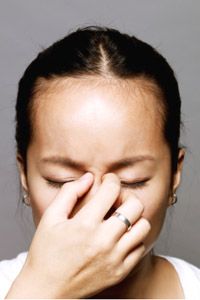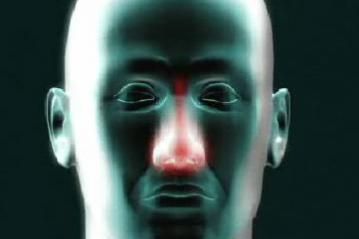Hay fever is an allergic reaction to environmental triggers. Although the term "hay fever" has been used for centuries, it is unlikely (though not impossible) for hay to cause hay fever. The scientific term for hay fever, "allergic rhinitis" is more accurate.
The most common allergens to cause hay fever are pollen, animal dander, dust and mold. Mold allergies are usually worse in rainy and humid weather because mold is common in places where water collects. This includes window moldings, damp basements and shower curtains, but mold is also prevalent on wet and rotting organic material such as compost, leaves, peat moss, mulch, logs and, yes, sometimes hay. If one of these materials is causing an allergic reaction, however, you are lucky because you can simply remove the offending material or leave the area and your symptoms will go away.
Advertisement
Symptoms of hay fever include puffy, itchy, watery eyes, runny nose, nasal congestion, sneezing, cough, sinus pressure, facial pain, allergic shiners (swollen, blue skin under the eyes), itchy mouth, nose or throat and decreased sense of taste or smell. Hay fever sufferers may experience some or all of these symptoms, which will begin immediately after exposure to the allergen or allergens.
If you have some or all of symptoms of allergic rhinitis, you should see an allergist to be properly diagnosed. You should stay away from the triggers that cause your symptoms, keep windows closed during the worst seasons for your allergies and run the air conditioner on re-circulate so that air full of allergens is not brought into your home, office or car. Your allergist may prescribe medication for you or even suggest you take steroid injections to alleviate your symptoms.
Advertisement

